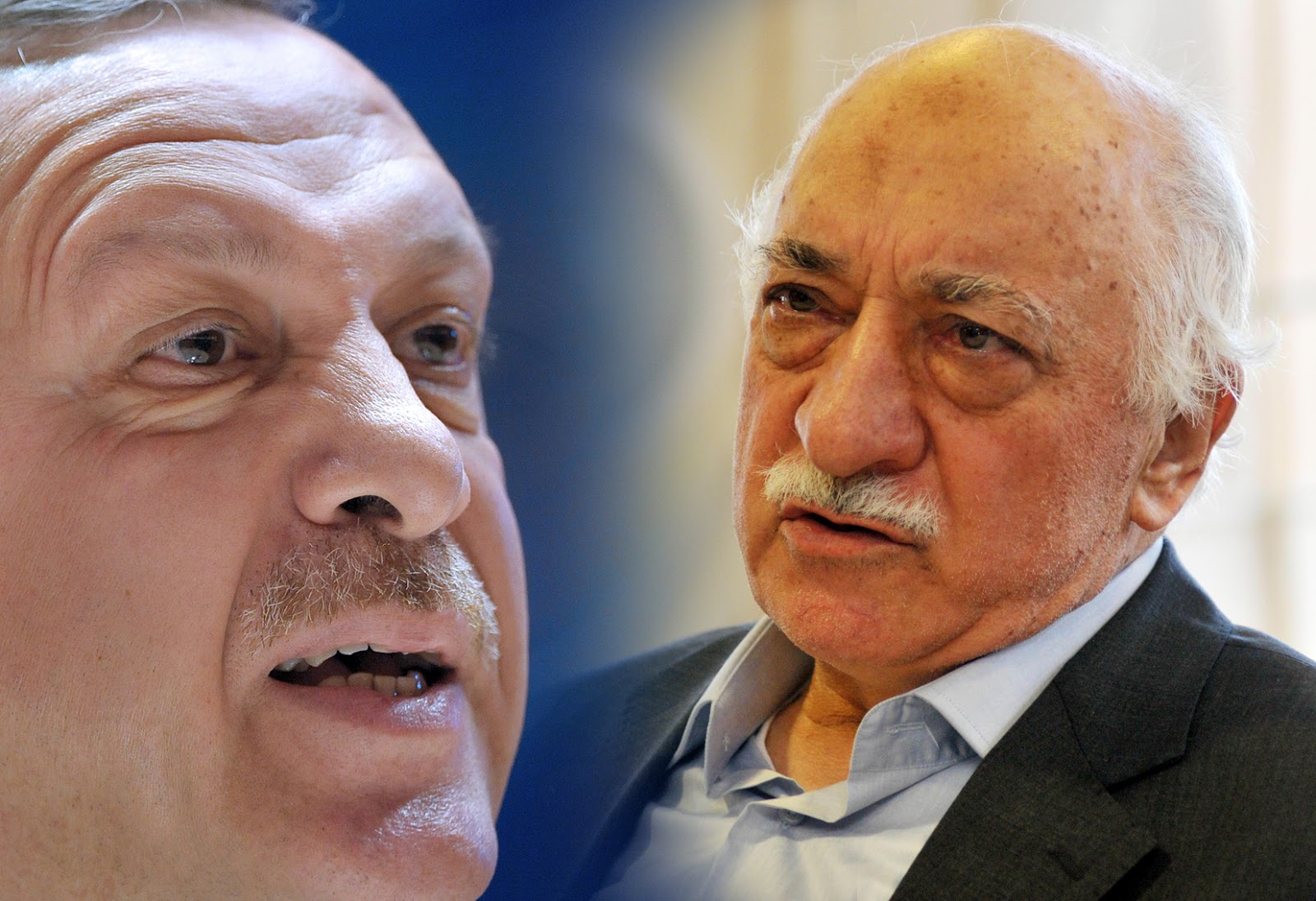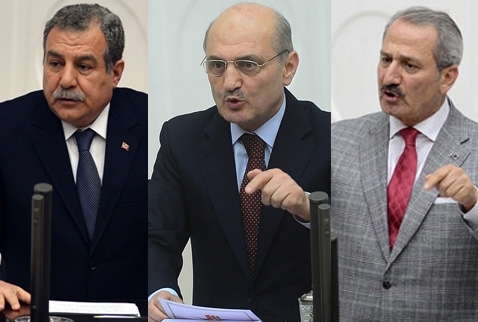Possibilities for the Turkish Society While the Ruling Class Coalition Falls Apart
In the last weeks, Turkey has witnessed a rising trend of political strife that started with the arrest of dozens of people by the prosecutors due to allegations of corruption and bribery. The interrogation revealed an illicit chain of bribery and close relations between government officials and prominent businessmen.
While many foreign commentators are ready to view the operation as a backlash of democratic forces against the rising dictatorial tendencies of the Prime Minister Tayyip Erdoğan[1], we argue that Turkey is going through a clash of two big Islamist fractions which has been in grand alliance until 2010 inside the ruling Justice and Development Party (AKP).
In this regard, the outcome of this fight, let as it is, will not be the democratizations of the country’s political system. The outcome without the effect of the working class political organizations will point to the political economic dominance of one of the fractions. In this article, we will lay down the characteristics of the two opposing poles, analyze the current crisis as a result of their different political economic strategies and summarize the recent developments.
The AKP government is based on the alliance of two big political economic fractions of political Islam in Turkey. The first group is led by Tayyip Erdoğan and the other is the Gülen Movement, led by Fethullah Gülen. Their grand political alliance in the last decade paved the way for the dismantling of the ancient regime, which was more structured for the benefit of the big bourgeoisie represented by the business association, TUSIAD-Turkish Industrialists and Businessmen’s Association. Various legal cases (including the well-known Ergenekon case) against the military bureaucracy provided the way for the increasing influence of the Gülen movement in the Police Department and juridical institutions, whereas AKP strengthened its position in the executive and legislative branches through successive election victories. As will be shown below, the recent political fight is expressed through these four branches of the state. The important question here is why these ‘brother’ groups gradually decided to wage a ‘war of mutual destruction’ (a.k.a nuclear war) as they are well aware of a possible destructive outcome[2]
To understand this, one needs to understand the various different patterns of political economic positions of each group. We argue for the primacy of this factor as defining the political positions of the two groups.
Gülen Movement has organized itself as a group with political and economic relations in Central Asian, Middle Eastern and African countries. Their method of expansion in these regions is reminiscent of the 19th century colonialism with missionary schools and devoted Turkish teachers to disseminate a Calvinist version of Islam and Turkish culture. Through their missionary activities, they have formed local political alliances in those countries and utilized those networks for their trade relations in those countries. As Gülen movement embedded itself in networks of international trade, it has always remained acquiescent of the imperialist arrangements that affect the social setting in which they operate. Hence, they have always been against any arrangements that challenge the geo-politics of Israel-USA camp in the Middle East and Africa.
On the other hand, the AKP camp, represented by mostly the business association MUSIAD-Independent Industrialists and Businessmen’s Association and a handful of capitalists from TUSIAD in the business world, is hardly a national bourgeoisie group. Their strategy has manifested a certain contradiction with contending imperialist arrangements in the region which we will touch upon below. AKP adopted an accumulation strategy that demands the growing of the domestic purchasing power for the realization of the housing stock. This strategy demanded low interest rates and powerful national currency since the construction sector depends on imports and low interest rates are vital for the steady flow of credits. Umit Akçay argues that the construction-based macro economic policy challenged the possibility of the persistence of the political coalition of the two groups as Turkish economy was hit by 7% contraction in 2009 due to the global economic crisis [3]. In other words, AKP’s import-based development became an impediment for the export based accumulation strategy of the Gülen group. While we argue that this difference comprises the leading economic basis of the dismantling of the political coalition, there is one area which further challenged the coalition.
AKP’s neo-ottomanist imperialist foreign policy, which has certain contradictions with the project of the NATO camp in the Middle East and Northern Africa, aggravated the relation between Erdoğan and Gülen. The first open clash took place in 2010 when the Israeli army killed 10 people in a Turkish fleet, Mavi Marmara, while going to Gaza. Fethullah Gülen openly criticized Tayyip Erdogan’s backing of the Gaza Mission and freezing of the diplomatic relations with Israel. After the social uprisings in North Africa and Middle East, AKP initiated an interventionist foreign policy in the region and Erdoğan openly supported the Muslim Brothers in Tunisia and Egypt, sometimes publicly condemning the policies of Israel and the US. The fact that MUSIAD and AKP participated in the formation of the Muslim Brothers’ business association in Egypt [4] demonstrates why, after the military coup d’état in Egypt, Erdoğan literally cried in front of the press. However, AKP’s neo-ottomanist policy also overrode the Gülen Movement’s local alliances in the region which was established in tandem with Israel and the US projects. Therefore, it caused a clear condemnation of the leader of the Gülen movement in many instances. This opposition may also be seen as the area in which the Gülen movement and Israel-USA group finds their common interest in removing AKP from power.
In addition to this, the Gezi uprising in June showed that Erdoğan was not able to govern the country anymore. His political power and legitimacy diminished drastically after the uprising. Erdoğan’s answer to this loss of legitimacy was to radicalize in order to consolidate its base in a smaller scale. His radical Islamist discourse accelerated to a degree that it raised doubts among his former supporters while Gülen pretended to support the protests, leaving Erdoğan at the target zone. Erdoğan answered by a campaign against private tutoring centers, one of the main sources of Gülen movement to recruit new members to the movement. And this dramatic move has lead to the initiation of an all out political war between the two fractions.
On December 16th, Hakan Şükür, a well-known ex-football player, member of Gülen movement and an AKP deputy, resigned from AKP due to this conflict. This resignation may be considered as a kick-off for the battle, the highlights of which we try to list below.
* December 17th welcomed an extensive “corruption” operation, in which a total of 49 people were detained, including the sons of three ministers (the Minister of Internal Affairs, the Minister of Economy and the Minister of Environment), advisors of four ministries, the construction billionaire Ali Ağaoğlu, the CEO of state-owned Halkbank, a mayor and several business people. In the meanwhile, videos showing ministers accepting bribes were posted online.
* First counter-attack from AKP came on December 18th, when eleven chiefs in the police department were dismissed. In the meanwhile, it was reported that a total of 4,5 million dollars were found in shoe boxes during the investigations in the house of the CEO of Halkbank.
* On the following days, the Minister of EU Affairs was also included in the investigation, and many documents discovered in the investigations revealed that Tayyip Erdoğan himself gave finalizing orders for the involving trillions of Turkish Lira.
* The second battle took place on December 25th. The three Ministers whose names were involved in the case resigned. Some 400 people in the police department were reallocated. It was reported that the Police Department was “resisting” to the orders of public prosecutors by not carrying out the demanded investigations, as the son of Tayyip Erdoğan was mentioned for the next operation. At the same time, Erdoğan made essential revisions in the government and substituted ten ministers. Moreover, the public prosecutor working on the second wave was taken out from the case.
* Entering the second week of the crisis, more rats abandoned the sinking ship. Many more deputies resigned, many started criticizing the government (as if… well, anyway), and a huge counter-operation took place in the Police Department involving thousands of reallocations and investigations. In the meanwhile, a cautionary judgment was imposed on the belongings of seven important businessmen.
While this political war still continues as we write this article (December 30th, 2013), we want to emphasize that its basis is in the above-mentioned conflict of interests and its outcome will point to the political economic dominance of one of the fractions – unless the working class enters the stage, that is.
It’s not only us who think that way. Chapullers organized many protests in several cities since the investigation started. One of the leading slogans of Gezi, “Everywhere Taksim, everywhere resistance”, is adapted to describe the state apparatus: Everywhere bribery, everywhere corruption. As formulated wisely in the banners, the protesters insist that “only revolution can wash away this filth.”
[1] http://www.nytimes.com/2013/12/28/opinion/the-filth-in-erdogans-closet.html?smid=tw-share&_r=3&
http://www.newyorker.com/online/blogs/comment/2013/12/recep-tayyip-erdoan-demise.html
[2] Yalçın Doğan who is a deputy and advisor to Tayyip Erdoğan warns for such a possibility: http://www.radikal.com.tr/turkiye/yalcin_akdogandan_uyari_kaybet_kaybet_sarmali_olusur-1166659



